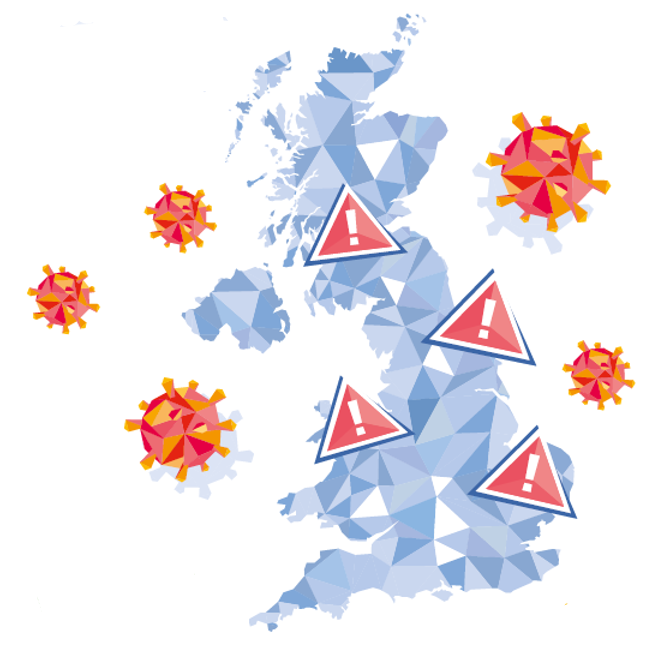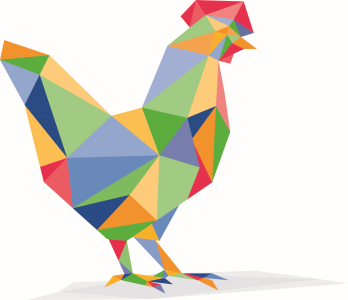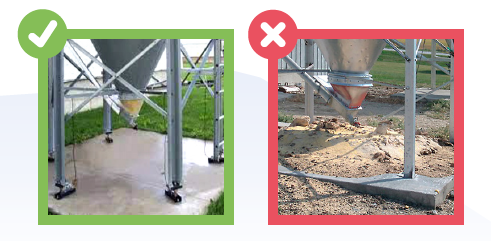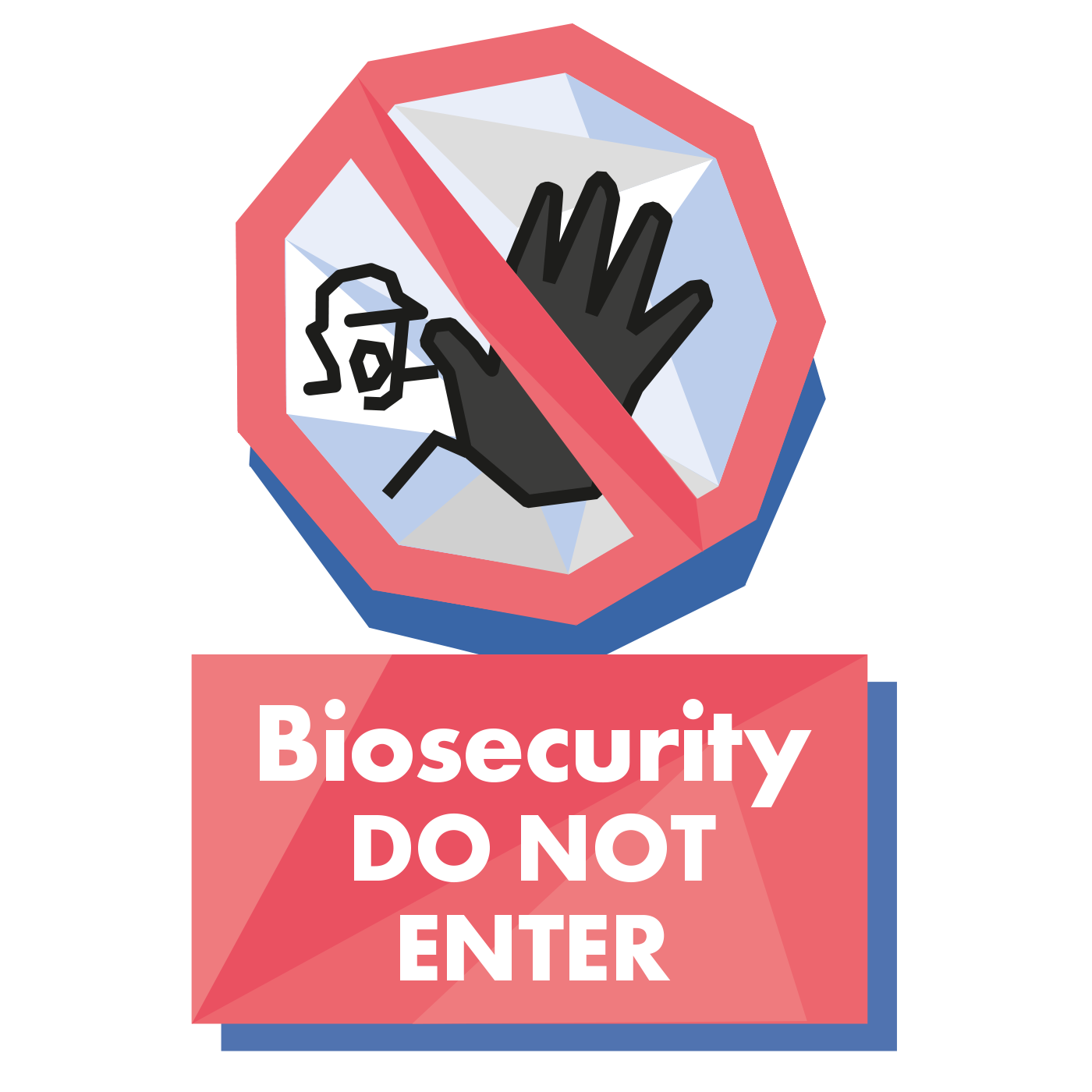Your safety, the safety of your teams and the safety of our drivers is of utmost importance to us. Working with the Farm Safety Partnership and the Agricultural Industries Confederation (AIC), we continue to improve safety, for everyone, during feed deliveries. Here are some reminders of how you can help us to achieve our goals.
Biosecurity - we all have a part to play
- Avian Influenza (AI) continues to present a risk from wild birds across the UK. Historically, AI was more problematic during the winter months, however, in recent years it has presented a constant challenge across all months. As a result, we must ensure all biosecurity requirements are met at all times.
- All our drivers operate to ABNs strict protocols regarding vehicle and on-farm biosecurity requirements. By following biosecurity measures and procedures, we recognise that we all have a part to play in reducing further outbreaks of AI.
Stay safe with our 4 step bio-security guide
 STEP 1
STEP 1
All vehicles should be cleaned on a regular basis, to avoid a build-up of excess mud and debris on wheels and chassis.
- We all have a responsibility to reduce risk of cross contamination through vehicle cleaning and maintenance.
- Excessively dirty vehicles could be refused entry to site.
- All driver PPE must remain on site for site to dispose of.
STEP 2
Follow the on-farm/site biosecurity protocols:
- Washing of wheels
- Signing in and out
- Wearing disposable overalls
- Dipping of boots or the use of dedicated wellington boots/ over shoes
- Used overalls and over shoes must be left on farm, these must not be brought back to sites
STEP 3
Follow any additional biosecurity measures that the farm has in place .
.
- We know that any feed spillages can attract wild migratory birds, increasing the potential spread of AI. To ensure we mitigate this, all feed spills must be cleared up before leaving site. All spills caused by our drivers must be completely and correctly cleared up i.e., swept up, bagged, and left under the feed bin.
STEP 4
 So, remember – Biosecurity procedures are of the highest priority both on-farm and at ABN site, to ensure we minimise the risk of spreading infectious disease where possible.
So, remember – Biosecurity procedures are of the highest priority both on-farm and at ABN site, to ensure we minimise the risk of spreading infectious disease where possible.
- All spillages are cleared up thoroughly before leaving the site.
- Ensure that all cyclones are emptied before each delivery.
- Areas around feed bins and where drivers operate, must be kept clear of designated dead stock bins/areas.
- Under NO circumstances should feed spills be left for the farmer to clear up.
Across ABN mill sites: Exteriors of all vehicles must not represent a contamination risk when presented for the carriage of goods. To ensure this, vehicles must be cleaned routinely in accordance with the operator’s procedures, customer and legal requirements.
Please note: Requirements may vary according to the species of livestock being fed and in the event of disease outbreaks.
Hazardous weather
If you think that road conditions in and around your site are unsafe for delivery, including the condition of your local area, please contact our customer support team as soon as possible to discuss the situation prior to your delivery being attempted. Things to consider are:
- All access roadways and walkways are clear of snow and ice and gritted or salted accordingly.
- Drivers can walk around the site safely while unloading their vehicles.
- Do you have an adequate supply of grit readily available? Our vehicles may not be able to make your delivery if feed bin access or roadways are not gritted.
Personal protective equipment
 In wet and icy conditions, disposable overshoes can be an extreme slip risk to drivers.
In wet and icy conditions, disposable overshoes can be an extreme slip risk to drivers.
- To minimise risk, please make alternative biosecurity provisions available close to where drivers alight their cabs, such as additional foot dips to ensure a safe alternative when overshoes cannot be worn.
- If staff are on site during severe weather or during out-of-hours deliveries, high-vis clothing must be worn – remember: Be seen, be safe!
Moonlight deliveries
Extending delivery time windows into the evening, early morning and weekends enables extra flexibility and the opportunity to improve our service. When out-of-hours deliveries are made, the site is often unmanned meaning that the delivery driver must navigate the site without assistance. To ensure the safety of the driver and your staff during moonlight deliveries please adhere to the following :
:
- A contact number must be provided for the driver to use if he requires on site assistance.
- Access codes for gates must be provided to ABN customer support prior to delivery.
- Bin numbers and bin splits, with tonnage required in each bin, have been communicated to Customer Support at the time of order placement.
- Any last-minute amendments should be displayed clearly where the driver can see them.
- If you do not currently have bin number labels, please notify your ABN Account Manager and we will be happy to supply these.
- Provide adequate lighting where possible throughout the farm including yards, turning areas, and access routes where the driver is required to walk whilst making the delivery.
Site access should be easy to identify:
- Entrance to the site clearly marked and suitable for the agreed size of lorry.
- Road markings, lighting and signage are clear, effective and in good condition.
- Map of site visible with directions & bins clearly identified.


